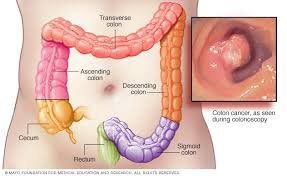Cancer is a word that strikes fear in many hearts, but awareness can be a powerful tool in detecting and addressing it early. Colon cancer, also known as colorectal cancer, is one of the most common cancers worldwide. In this blog, we’ll share Raquel’s journey to diagnosis, focusing on the symptoms she experienced and how they ultimately led her to seek medical attention. Her story serves as a reminder of the importance of listening to your body and acting on potential warning signs.
Who is Raquel?
Raquel is a vibrant 42-year-old mother of two who lives a busy life balancing family, work, and her passion for outdoor adventures. Her energy and positivity are contagious, but over the past year, she began noticing subtle changes in her health. Initially, she brushed them off, attributing them to her hectic lifestyle and poor diet. However, as the symptoms persisted, Raquel realized something wasn’t right.
Recognizing the Symptoms of Colon Cancer
Colon cancer often develops silently, with early symptoms that can easily be mistaken for other, less serious conditions. In Raquel’s case, these symptoms gradually became more pronounced. Let’s explore the key signs that prompted her to seek medical advice:

1. Persistent Changes in Bowel Habits
Raquel first noticed that her bowel movements were no longer predictable. For years, she had a regular routine, but she began experiencing:
- Constipation and diarrhea: Alternating bouts of these became more frequent.
- Narrow stools: She observed that her stools were thinner than usual, almost ribbon-like in shape.
- Urgency without relief: Despite the sensation of needing to go, trips to the bathroom often left her feeling unsatisfied.
These changes lasted for weeks, which is often a red flag indicating that something might be affecting the colon or rectum.
2. Blood in Stool (Hematochezia)
One morning, Raquel noticed streaks of bright red blood in her stool. At first, she attributed it to hemorrhoids, a common condition she had dealt with after her pregnancies. But over time, the bleeding became more frequent.
Blood in the stool, whether bright red or dark and tar-like, is a critical symptom of colon cancer. It occurs when cancerous tumors in the colon bleed into the digestive tract.
3. Unexplained Fatigue and Weakness
As a busy mother, Raquel was no stranger to exhaustion. But this felt different. She experienced:
- A constant lack of energy.
- Difficulty completing simple tasks without feeling winded.
- An overwhelming sense of weakness, even after a full night’s rest.
These symptoms can indicate anemia, often caused by chronic blood loss due to a bleeding tumor.
4. Abdominal Pain and Cramps
Initially, Raquel attributed her mild abdominal discomfort to gas or indigestion. Over time, however, the pain became sharper and more localized.
- She experienced persistent cramping in the lower abdomen.
- Occasionally, she felt bloating and a sensation of fullness, even without eating much.
Such symptoms can indicate a blockage in the colon, a sign of an advanced tumor.
5. Unexplained Weight Loss
Without any significant changes to her diet or exercise routine, Raquel noticed that she was losing weight. Over the course of a few months, she dropped nearly 10 pounds. While some might celebrate unintentional weight loss, it’s often a red flag for underlying health issues, including cancer.
Cancerous cells can alter the body’s metabolism and immune response, causing weight loss even when appetite remains unchanged.
What Prompted Raquel to See a Doctor?
Raquel’s wake-up call came when she experienced a particularly alarming episode of rectal bleeding combined with severe abdominal cramps. She confided in her husband, who insisted she schedule an appointment with her primary care physician.
During her visit, the doctor listened to her symptoms and ordered a series of tests, including:
- Blood tests: These revealed anemia.
- Stool tests: To check for hidden (occult) blood.
- Colonoscopy: This definitive diagnostic tool allowed the doctor to view her colon and identify the tumor.
The diagnosis was colon cancer, caught at Stage II. Though the news was devastating, Raquel felt relieved to finally have answers and a plan of action.
The Importance of Early Detection
Raquel’s story highlights the importance of paying attention to your body and not dismissing unusual symptoms. Early detection of colon cancer significantly increases the chances of successful treatment. Here are some steps you can take:
- Know your family history: If colon cancer runs in your family, you may be at higher risk and should consider earlier screening.
- Screening: The American Cancer Society recommends regular screening starting at age 45, or earlier if there are risk factors.
- Lifestyle changes: A diet rich in fiber, regular exercise, and avoiding excessive red meat and alcohol can reduce the risk of colon cancer.
Symptoms Checklist for Colon Cancer
If you or a loved one are experiencing any of these symptoms, don’t ignore them:
- Persistent changes in bowel habits (diarrhea, constipation, or narrow stools).
- Blood in the stool or rectal bleeding.
- Abdominal pain, cramping, or bloating.
- Unexplained weight loss.
- Fatigue or weakness.
Hope and Healing
Raquel is now undergoing treatment, which includes surgery to remove the tumor and a targeted chemotherapy regimen. She’s sharing her story to encourage others to seek medical attention when something feels off.
Her message is clear: “Don’t ignore the signs. Your health is worth it.”
Conclusion
Colon cancer may be a daunting diagnosis, but Raquel’s journey demonstrates the power of early recognition and timely medical intervention. By understanding the symptoms and knowing when to seek help, you can take control of your health and potentially save your life.
If you’re experiencing any symptoms mentioned above or are due for a screening, don’t delay—consult your doctor today. Early detection is the key to better outcomes and a brighter tomorrow.








